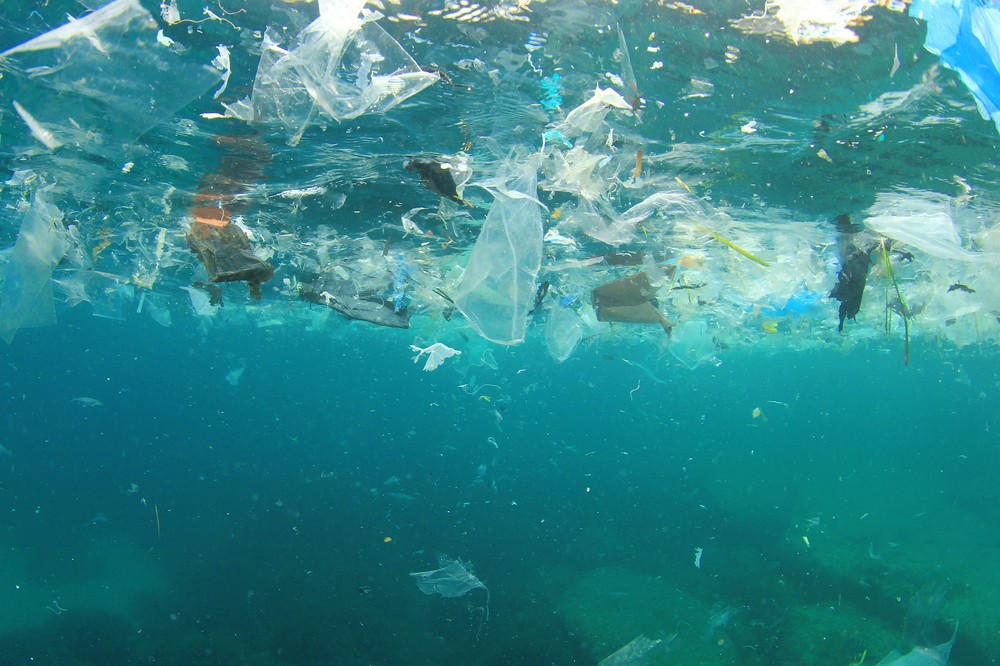Human influence on the ocean
October 26, 2020
All around the world there are oceans that produce over half of the world’s oxygen and as well as regulate the climate and weather patterns by transferring heat from the equator to the poles. The ocean provides us with organisms like fish, seaweed and plants, sponges, shells, fish oil, coral, and many other resources that we use throughout our life. No matter where we live, the oceans bring different benefits to our lives. Why would we try to ruin that? The ocean is the most affected ecosystems by humans, even though it is the most beneficial ecosystems to humans. Humans continue to impact the life of the ocean ecosystem by occurrences like pollution, overfishing, and as well as the introduction of invasive species.
Every year there are billions of pounds of trash thrown into the ocean, 14 billion pounds to be exact. The increase in the amount of trash in the oceans corrupts the environment of the ocean because many organisms may think the trash is food and end up dying from it or even become suffocated from it floating in the water. “Plastic bags and other plastic garbage thrown into the ocean kill as many as 1 million sea creatures every year,” states the Seastewards Organization. With the continuous increase of plastic and other trash in the ocean every year and each day, it is important for individuals to recycle and to pickup trash whenever they can.
 Not only does pollution in the ocean impact the life of the ocean, but how much people fish is also disadvantageous to the ecosystem. Individuals continue to catch fish whether it is to sell it, eat it, or buy it from others to make a living. Overfishing or illegal fishing makes it so the ocean struggles to manage and conserve the resources it contains. Fishing great amounts of fish not only affects the population of those fish species, but it also impacts other entire ecosystems. “When too many fish are taken out of the ocean it creates an imbalance that can erode the food web and lead to a deprivation of other important marine life, including vulnerable species like sea turtles and corals,” says the World Wildlife Fund, who works to end overfishing. Many organizations throughout the world work to try and reduce the environmental impact overfishing has, even though individuals continue to overfish to benefit their business and get more money.
Not only does pollution in the ocean impact the life of the ocean, but how much people fish is also disadvantageous to the ecosystem. Individuals continue to catch fish whether it is to sell it, eat it, or buy it from others to make a living. Overfishing or illegal fishing makes it so the ocean struggles to manage and conserve the resources it contains. Fishing great amounts of fish not only affects the population of those fish species, but it also impacts other entire ecosystems. “When too many fish are taken out of the ocean it creates an imbalance that can erode the food web and lead to a deprivation of other important marine life, including vulnerable species like sea turtles and corals,” says the World Wildlife Fund, who works to end overfishing. Many organizations throughout the world work to try and reduce the environmental impact overfishing has, even though individuals continue to overfish to benefit their business and get more money.
Invasive species are organisms that introduced to an environment they are not first in and may cause harm. If an invasive species is brought to the oceanic environment, it may cause predation and competition throughout the food chain it disrupts. As the National Marine Fisheries states, invasive species may lower biodiversity, reduce habitat quality, impact protected species, and much more. To reduce the effect of invasive species on the oceanic ecosystem, the National Marine Fisheries works to monitor species and study their effect on different habitats.
To conclude, there are different factors that impact the life and strength of the ocean including pollution, overfishing, the introduction of invasive species, and many more. As a society, it is important for us to consider helping to rebuild the life of the ocean. Recycling, picking up trash, reducing the amount of fishing, and monitoring the species in the ocean, are all effective ways for individuals to keep the ocean alive.
